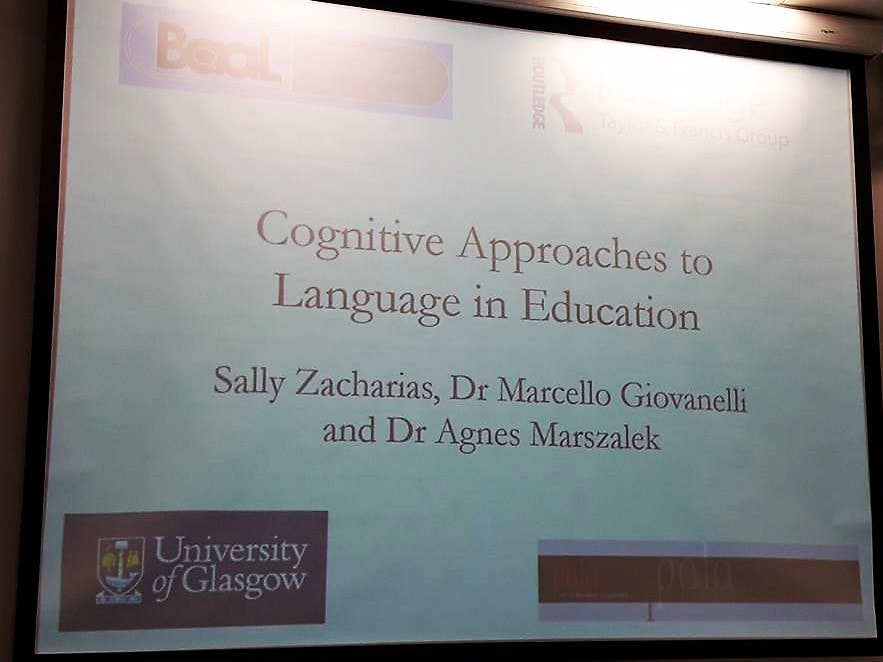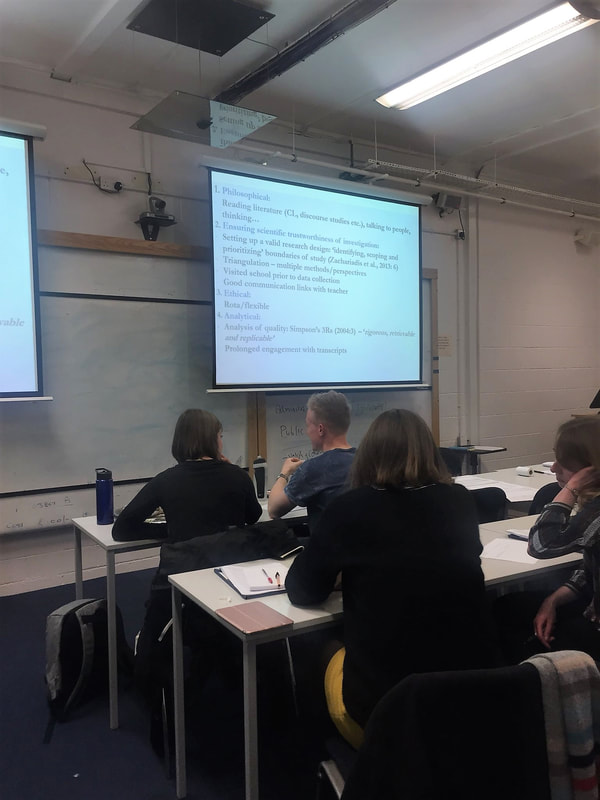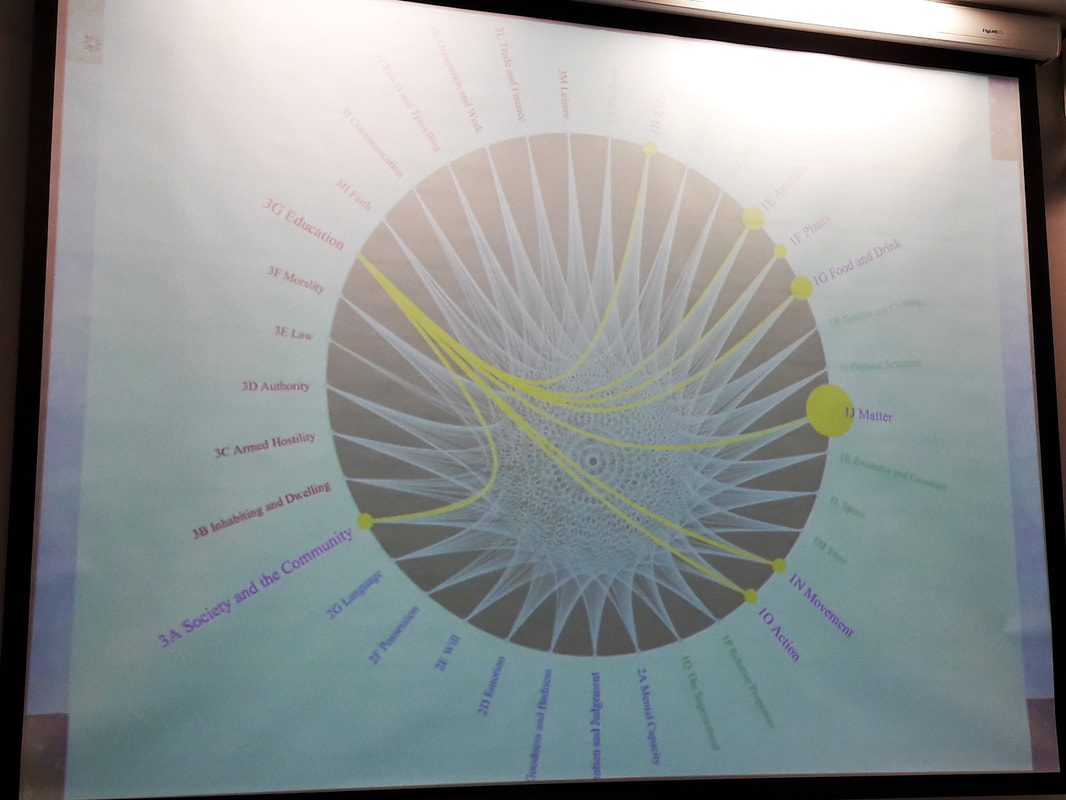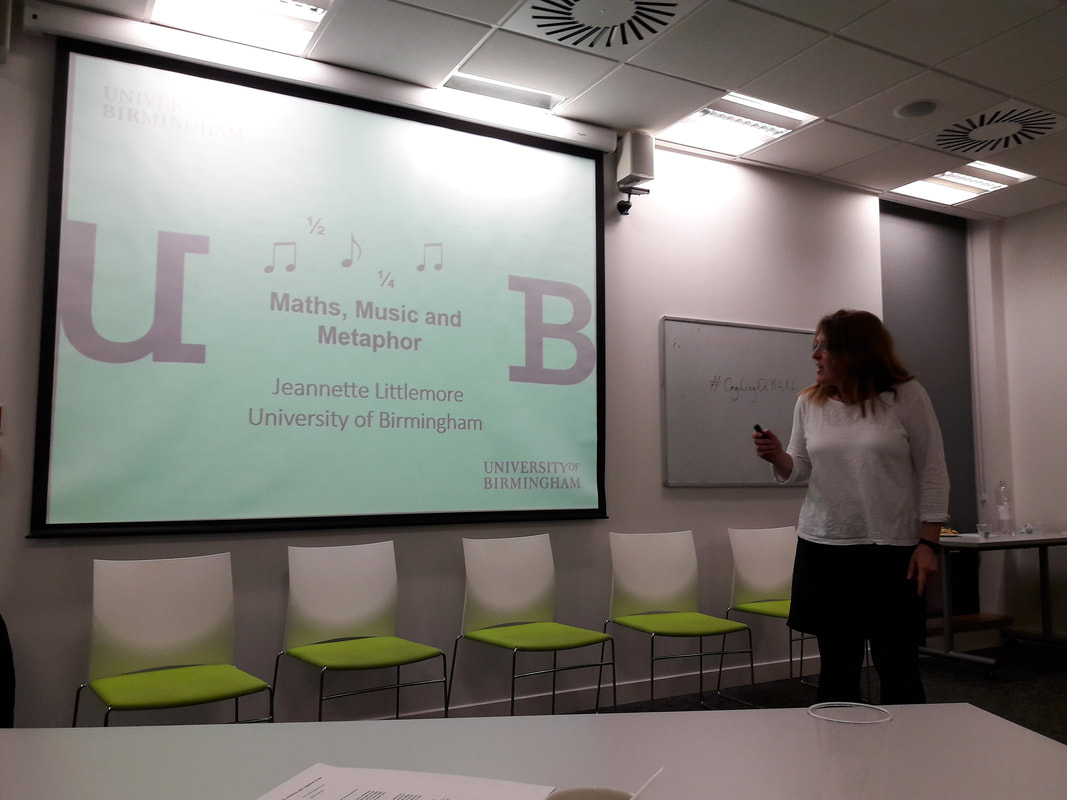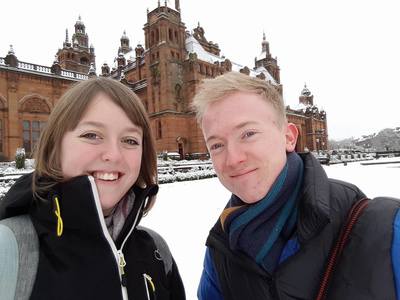metaphor, could be observed in the classroom through teacher and student discourse.
The conference day on Friday was full of presentations that were each as intriguing and thought-provoking as the last. The programme was brimming with different ideas from ECRs to professors. Among my highlights were the talks presented by Wendy Anderson, Ian Cushing, Marcello Giovanelli and Jess Mason, Jeannette Littlemore, and Rawan Saaty.
which features in the language as early as the 1400s! Moreover, as if the project was not already an impressive feat, Anderson explained that the newly-founded metaphor map was used to create an app, which contained teaching materials including information, examples, and quizzes to raise student awareness and understanding of metaphors to help improve their metaphor competence and language skills. Not only does the project provide a historical viewpoint of metaphors in English from past to present, but it also applies the findings to aid language teaching. Following on from Anderson, Ian Cushing discussed his doctoral research that investigated teacher discourse about grammar. When talking about grammar, he found many teachers used metaphors to frame their explanation of the system. Among the most frequent metaphors, grammar was compared to being a rulebook, a construction, or an object of some description. However, some metaphors, such as grammar is a rulebook, portrayed grammar as something that constrains creativity through demanding rules that 'must be followed'. The negative associations of these metaphors were reflected in the teacher’s discourse during interviews. Alternatively, other metaphors, such as grammar is a construction, lead to more positive conceptualisations of grammar that enable English speakers and writers to appreciate the coherence and synergetic power of how grammar can contribute to the creation of meaning. Speakers Alice Deignan and Elena Semino found that, when talking about climate change, certain metaphors were misconstrued and led to negative and inaccurate interpretations of climate change; rather like some grammar metaphors producing negative and inaccurate assumptions. These findings demonstrate that there is a need to raise awareness of metaphors, their usage, and affects to teachers and students alike. Using more positive framing of concepts via metaphor will improve the perception of education and improve learning. Anderson, Cushing, and Deignan and Semino, among others presenting throughout the conference day, emphasised the importance of working with teachers as part of their projects to gather more informed research on language in education and to inspire discussions concerning the potential implementation of the consequent findings. The most shocking discovery I had whilst attending the conference was from Marcello Goivanelli and Jess Mason’s talk that revealed educational books on literary texts can pre-figure student’s interpretations and limit creative responses to fictional literature. Giovanelli and Mason have conducted previous studies on this topic and its presentation at the conference made me realise how important the structure, as well as the content, of a taught class can be to a student’s education.
in their maths and music classes. Many of the metaphors also involved gestures that were largely centred either on a vertical or horizontal axis. The results were compared to adults and revealed that the conceptual metaphors used to understand number and pitch can alter in order and orientation, which may be due to the artefacts of habitual teaching (i.e. graphs, number lines, etc). The project and its findings will be published once the research is finalised. Finally, Rawan Saaty presented her doctoral research, which incidentally combined ideas that had been discussed in previous presentations on that day. In short, Saaty told us how conceptual and embodied metaphor training can result in longer term retention of vocabulary; ultimately, providing a better understanding of taught material and an improvement to language skills. Overall, the conference allowed me to understand how metaphor research can be applied to linguistic investigations in different settings; in this case, education. Since beginning my research on language in advertising from my second year of my Bachelor’s degree, I have gradually come to the realisation that advertising can also serve as a form of education. It communicates, reinforces, and modifies pre-existing ideologies and educates consumers on market availability and influences their behaviour to construct concepts that help companies sell their products. Learning how linguistics in education can make teaching better and more effective has given me some ideas of how advertising can be altered to produce more ethical and informative campaigns, following ideologies that are productive, constructive, and conducive to a healthy, intelligent, and kind society. How certain linguistic approaches could be introduced to the educational scene, and suggestions for how these may be implemented into the curriculum, proved to be the more challenging parts of applying research to policy; but nonetheless crucial to progress from paper to practice; from linguistic research to the educational system. These changes may be achievable with time but, as Sally Zacharias so rightly stated when concluding the conference, ‘we can make some smaller changes while we wait’. Thank you to Sally Zacharias, Marcello Giovanelli, and Agnus Marszalek for organising the conference, which has inspired some new ideas for my future research, and made me realise that linguistic research can make a positive impact and bring about positive progress for the next generations. Greg and I also got a chance to explore the city of Glasgow, which enhanced our experiences! Copyright © Samantha Ford 2018
0 Comments
Leave a Reply. |
Categories
All
Archives
October 2022
|
Photos from wuestenigel (CC BY 2.0), wuestenigel
